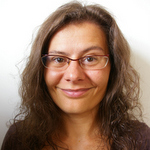International Conference on Information and Communication Technologies and Development 2013
International Conference on Information and Communication Technologies and Development 2013
Posted on 18 January 2014
International Conference on Information and Communication Technologies and Development 2013
7 - 10 December 2013, Cape Town, South Africa
By Caitlin Bentley SSI Fellow and PhD Candidate at Royal Holloway University of London
Highlights:
1. Ideas and practices regarding software sustainability has reached maturity within ICTD technical and practitioner constituencies. In cases where software projects have gained mainstream acceptance, researchers are struggling with academic structures to maintain their projects and understand the benefits of dedicating resources to software sustainability. This research community could be a great source of knowledge for SSI members who seek to build open source communities of users.
2. One of the main areas that needs our attention is the level of reflexivity that social science researchers maintain regarding their practices and techniques of software use and application within their research. Communication between technical and social science communities happens at this conference, but there is a need for more regular contact, especially in terms of supporting software skills and techniques.
3. Software sustainability seems to evoke negativity in our community as many software related issues have endured years of criticism that they seem to have developed greater sensitivities to ideas or concepts that evoke too heavy a focus on software.
Event report:
This is the fourth edition of the ICTD conference that I have attended. There has been an evolution within the field since then as many of the computer science and software projects within the area were heavily criticised for being overly technocratic, modernist and paternalistic. The topic of software sustainability is therefore a somewhat sensitive and even ‘old’ subject as many researchers assume that software sustainability issues focus too heavily on software specifically.
I organised an open session on the topic of software sustainability on the last day of the conference in the morning. We had asked for the session to be changed to the last day because one of my co-organisers was organising the ACM-Dev conference that was co-located with ICTD and overlapping on the first day. In retrospect we should have kept our original slot because many conference attendees did not show up on the last day and we had a lot of competition during our new slot.
I spent a lot of time, however, talking and networking with conference attendees and promoting my session. My impression was that people were tired of talking about software sustainability, and it was only after I explained some of the issues that I find interesting about software sustainability that people began to perk up and take interest. There is a need to re-invent the term within our field because software sustainability is largely felt to be ‘solved’ (or to some extent, ‘unsolvable’). Regardless of my shameless promotions, the early start time on the last day still seemed too much to overcome, and nobody came to our session!
Nonetheless, present at the session was myself, Izak van Zyl, Carlos Rey-Moreno, and Fritz Meissner. Carlos is someone who represents the group of researchers who feel that software sustainability is passé within our community. He has written a book chapter on the challenges of contributing to FOSS projects as a complement to their research objectives. He has a high level of awareness of what makes a successful FOSS project and what typical software sustainability practices that the SSI promotes are. Fritz has just finished his Master project and is looking for doctoral opportunities and also has a high level of awareness and knowledge regarding software sustainability. As a computer scientist, he feels that researchers need to choose whether they go a ‘research’ or a ‘development’ (as in, international development, not software development) route. Software sustainability is more important to those projects that focus more on development than on research and innovation but requires more time and effort for students because they end up supporting community users and so forth. He is interested in learning about how institutions could incentivise this kind of research avenue for someone in his position.
For Izak and myself, our interests were in bringing together our more technical communities with our social and critical theory research communities. We spoke at length about the tools that we use in our research and the barriers that exist in bringing awareness and reflexivity in how these tools impact our research outcomes. Many of these barriers seeming easily addressed by Carlos and Frtiz, that which reinforces our point that greater dialogue, communication and support within our research community could be beneficial. We spoke about what kinds of software carpentry sessions could be useful, but discussions generally veered back to licensing issues, meaning that a certain amount of advocacy or bottom-up organisation is necessary. We also came up with a plan to crowdsource new software requirements and to then translate and feed these into UCT Master students who are generally looking for software development projects with clear and concrete specifications.
The end of our discussions amongst collaborators ended with a plan to write an article together on the topic. We aim to submit to the special call from the Journal of Information Technology “Growth in ICT uptake in developing countries: New users, new uses, new challenges” The paper will discuss the evolution of software sustainability in the field of ICTD, the challenges of software sustainability in the context of participatory design practices and use of software by researchers in developing countries. This was the broad outline at least.

